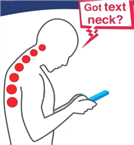-
Are you interested in these Jobs?
 Video game tester
Video game testerWould you like a job that lets you play games? Mitch Ellis works for a video game company. A lot of teenagers want his job because he plays video games four hours a day! He’s the one who tests the games to make sure they work. Mitch loves his job because it’s exciting!
 Dog walker
Dog walkerWould you like a job that lets you work with animals? Do you want one that lets you be outside a lot? Amy Carson walks three dogs, three times a day, five days a week! Dogs are playful and fun, so her job is never boring.
 Climbing guide
Climbing guideMany people want work that lets them travel. Are you active and healthy? Are you someone who likes to hike and climb mountains? Join us! Paulo Costa is a climbing guide. He helps people climb mountains. He travels all over Brazil – and gets paid for it!
 Book sorter
Book sorterDo you love books? Can you work on Sunday night? The library is looking for someone who can help sort (分类) books and put them back on the shelves. Before Thursday, send an e-mail to Janet Chen (Janet. chen@kidsheinle.com) if you are interested.
1.Who works as a dog walker?
A. Amy Carson. B. Mitch Ellis.
C. Paulo Costa . D. Janet Chen.
2.If you are active and healthy, you’re wanted to be a ______.
A. video game tester B. dog walker
C. climbing guide D. book sorter
3.The library needs someone to work ______.
A. on Thursday night
B. before Thursday
C. before Sunday
D. on Sunday night
难度: 困难查看答案及解析
-
Have you ever shoveled (铲) snow after a snowstorm? Most people try to remove snow. But in February, in Sapporo, Japan, trucks actually bring snow into the city! People shovel the snow into large piles, and these piles of snow become outdoor cafes, concert stages, and beautiful sculptures (雕像).
Artists from all over the world come to Sapporo’s Snow Festival every year to enter the sculpture competition. But the sculptures aren’t made of stone, metal or wood – they are made of snow and ice! Artists sometimes work 11 to 12 hours a day to make amazing sculptures. Many of the sculptures are huge and very detailed. During the day, the sculptures shine in the winter sun. At night, colorful lights shine on them. Millions of people go to see them every year.
The Snow Festival had not always been so popular. It started in 1950 as something very small. People in Sapporo wanted to go outside and have fun during the long, boring winter, so the city held a one-day fair in a park. People listened to music and danced. They watched movies and dog races. But some high school students had a great idea and built six large interesting snow sculptures. People really liked the sculptures, and the Snow Festival was born.
Five years later, soldiers nearby brought tons of snow into the city. They made the snow into large blocks and used ladders to build huge sculptures. These sculptures were amazing, and the small festival turned into an international event.
More than 60 years have passed. Today, the festival is seven days long. Every year, millions of people wear their warmest coats and go outside to celebrate the snow!
1.Artists go to Sapporo every winter mainly to ______.
A. listen to music and dance
B. watch movies and dog races
C. have a one-day fair in a park
D. enter the sculpture competition
2.In 1950, some ______ built six large interesting snow sculptures.
A. artists B. high school students
C. soldiers D. movie stars
3.What is the passage mainly about?
A. Winter activity.
B. Sapporo, Japan.
C. The Snow Festival.
D. Outdoor sculptures.
难度: 困难查看答案及解析
-

“Text Neck is not just a texting problem,” said Dr. Dean Fishman. “Text Neck is a gaming problem. Text Neck is an e-mailing problem.”
Fishman made up the term “Text Neck” in 2008 while examining a 17-year-old patient. The teen came in complaining of neck pain. Fishman noticed that the teen was sitting in a chair, bending (弯曲) over her smartphone, texting away. “I knew I had something,” Fishman said.
A recent study published in Surgical Technology International’s 25th edition says texting may be hurting your back. The study found that bending your head to look at your mobile phone held in your hands can put up to 60 pounds of pressure (压力) on your neck. The average human head weighs 10 pounds in a right position – when your ears are over your shoulders. For every inch you bend your head forward, the pressure on your back doubles.
Staying in the “forward head posture” can lead to many problems. Over time, it can even change the natural curve (曲线) of your neck.
Dr. Michelle Collie, director of Performance Physical Therapy in Rhode Island, recently says Text Neck has increased very quickly, especially among her younger patients. According to the Kaiser Family Foundation, 8- to 18-year-olds spend almost seven and a half hours using mobile device or desktop computer for fun every day.
So what’s a smartphone-texting, laptop-loving guy to do?
First, Collie said, is to pay attention to your body. Keep your feet flat on the floor, roll your shoulders back and keep your ears directly over them so your head isn’t bent forward. And use something to support the weight of a mobile device.
Fishman’s Text Neck Institute created a mobile app to help you remember to avoid forward head posture. When your phone is held at a safe point, a green light shines. When you’re at risk for Text Neck, a red light appears.
Most important is taking breaks from time to time while using any mobile device or desktop computer. About every 20 minutes, stand up, roll your shoulders and neck or go for a short walk to have a break.
1.What might Fishman mean by saying “I knew I had something”?
A. He had the same smartphone as the patient.
B. He got a new name for the patient’s pain.
C. He wanted to play a joke on the patient.
D. He had the same idea with the patient.
2.According to the passage, your head is in the right position when ______.
A. you bend over your neck often
B. your ears are over your shoulders
C. you turn your neck to the other side
D. you put up more pressure on your neck
3.The last three paragraphs are mainly talking about ______.
A. how to make Text Neck apps
B. what causes Text Neck
C. how to avoid Text Neck
D. the results of Text Neck
难度: 困难查看答案及解析
-
Language in crisis
Today, almost 80% of the people in the world speak only 1% of its languages. Every 14 days a language dies. By 2100, half of the more than 7,000 languages spoken on Earth today may disappear.
Why do languages die?
Throughout history, the languages of dominant (统治的) groups have spread while the languages of native cultures have become extinct. This happens because of government language policies, or because the dominant language becomes more useful in everyday life.
Why is language important?
Studying different languages increases our understanding of how humans communicate. Language is also an important part of culture. Words that describe a particular cultural practice might not have meaning in another language.
Native groups often have a deep understanding of local plants and animals because they have lived close to nature for thousands of years. We could discover important things, such as treatments for illness, by studying these languages. Many endangered (濒临灭绝的) languages aren’t written down. When the last speakers of a language die and their language becomes extinct, their stories, songs, and other important information are lost, too.
Which languages are disappearing?
Central South America has some of the world’s most endangered languages. The Kallawaya people speak a secret language that has details of thousands of medicinal plants. Today, fewer than 100 people speak it.
In Central and Eastern Siberia, almost all of the native languages are endangered. Many Siberian languages now have only a few elderly speakers.
Oklahoma has the highest number of native languages in the United States. One of these, Yuchi, may be unrelated to any other language in the world. However, during the early 20th century, government schools punished students who were heard speaking it. In 2010, only five elderly members of the Yuchi tribe could speak their native language.
How are languages being saved?
Native cultures around the world are using modern technology to help keep their endangered languages and cultures alive. Communities are creating dictionaries and libraries by using pictures, video, and audio to record the traditions of the last speakers of their language. If the younger generations don’t speak and understand the words and stories of their ancestors (祖先), the language will die. And when the language dies, part of the culture dies, too.
1.The underlined word “extinct” probably means ______.
A. selling out B. dying out C. speaking out D. putting out
2.How are the native languages in Central Siberia and Oklahoma similar?
A. Both of them are secret languages.
B. Fewer people can speak them today.
C. They are both unrelated to other languages.
D. They are both spoken mainly by young people.
3.To save a language, it is most important for______ to learn it.
A. young people B. parents
C. scientists D. dominant groups
4.What does the writer want to tell us in the passage?
A. It’s necessary to study more languages.
B. It’s good for people to speak the same language.
C. Preventing the loss of the world’s languages is important.
D. Protecting languages is more important than protecting culture.
难度: 困难查看答案及解析